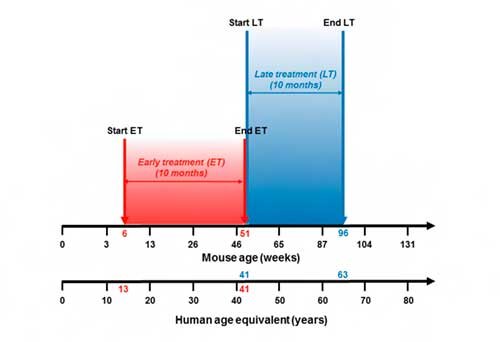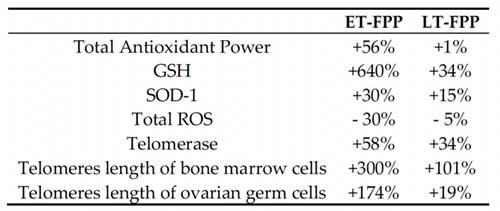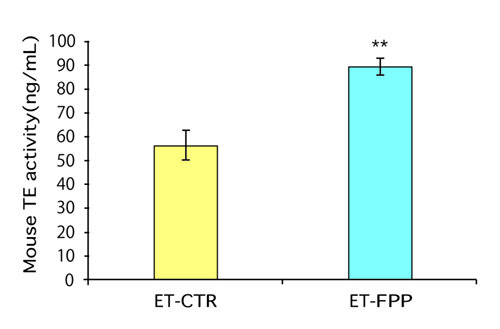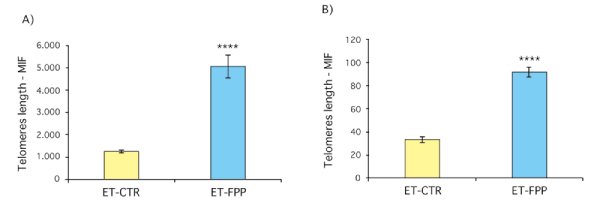Research
Beneficial Effects of Fermented Papaya Preparation (FPP)
Supplementation on Redox Balance and Aging in a Mouse Model
FILE2020
Category Whole-BodyAge-Related DiseasesRedox BalanceBasic Research
Beneficial Effects of Fermented Papaya Preparation
(FPP®) Supplementation on Redox Balance and Aging in a Mouse Model
Antioxidants, 9, 144; 2020
In recent decades much attention has been paid to how dietary antioxidants may positively affect the human health, including the beneficial effects of fermented foods and beverages. Fermented Papaya Preparation (FPP) has shown to represent a valuable approach to obtain systemic antioxidants effect.
In this study, we wanted to verify whether FPP had a clear and scientifically supported in vivo anti-aging effect together with the induction of a systemic antioxidant reaction. To this purpose we daily treated a mouse model suitable for aging studies (C57BL/6J) with FPP-supplemented water from either the 6th weeks (early treatment : ET) or the 51th weeks (late treatment :LT ) of age as compared to mice receiving only tap water. After 10 months of FPP treatment, we evaluated the telomerase activity, antioxidants and Reactive Oxygen Species ROS plasmatic levels and the telomeres length in the bone marrow and ovaries in both mice groups. The results showed that the daily FPP assumption induced increase in telomeres length in bone marrow and ovary, together with an increase in the plasmatic levels of telomerase activity, and antioxidant levels, with a decrease of ROS. Early treatment resulted to be more effective, suggesting a potential key role of FPP in preventing the age-related molecular damages.

Fig.1. Equivalence between mice age and human age.
Table 1. Comparison between ET- and LT-treatment


Fig 2. Effect of FPP on telomerase activity
in plasma samples from C57BL/6J female mice.**p < 0.005

Fig3. Effect of ET-FPP on telomeres length in bone marrow cells
(A) and in ovarian germ cells
(B) from C57BL/6J female mice.
****p < 0.0001
